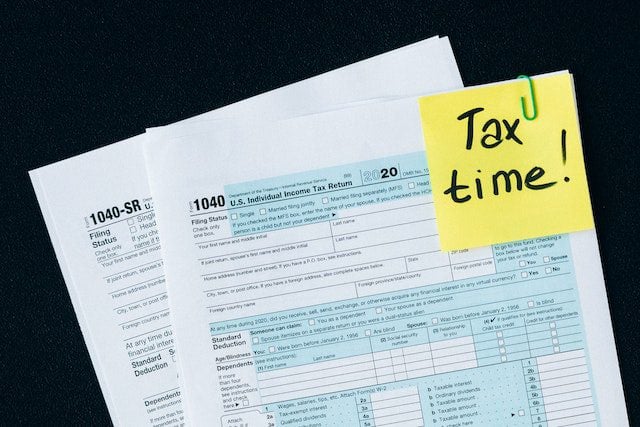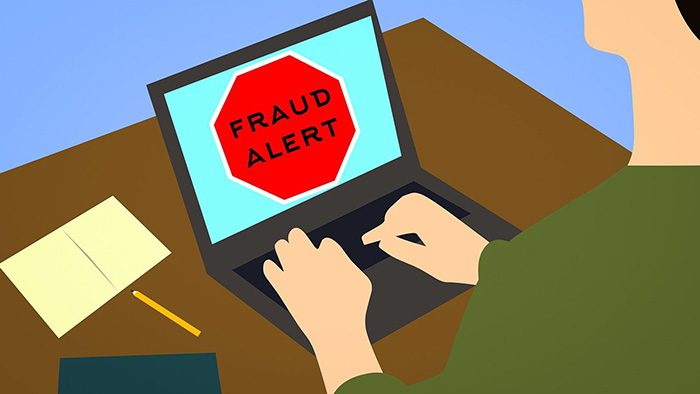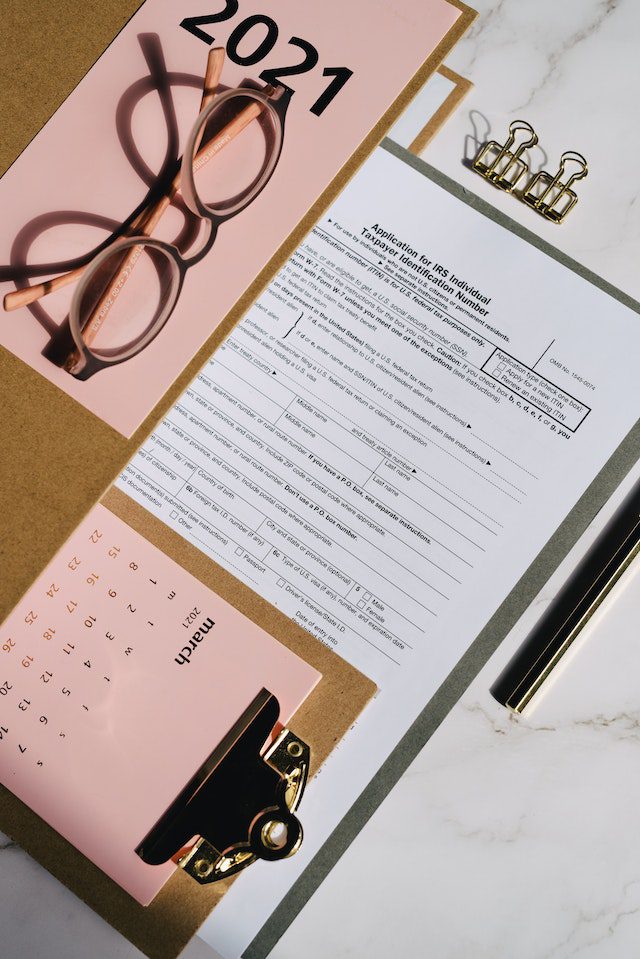10 Illinois Department of Revenue Audit Triggers
By Kelly Hanley, Esq., Tax Attorney
Baffled by the intricacies of state tax audits? You’re not alone. The complex realm of Illinois business tax can give even seasoned tax professionals pause. Even more concerning are those infamous Illinois Department of Revenue audit triggers that may send auditors scurrying in your direction like a pack of wolves to a lone sheep.
In this intricate dance of numbers and statutes, it’s crucial to understand what piques the interest of the Illinois Department of Revenue collections team. In the following lines, we’ll delve into ten triggers, equipping you with the knowledge to remain in their good books – or at least off their audit radar.
1. Dancing Around The Sales Tax
A State Tax Audit Two-Step
The first trigger is like stepping on your partner’s toes during a waltz – it’s bound to draw attention. Let’s say your business sells products in Illinois but is not collecting sales tax. The Revenue Department may see this as you playing a game of musical chairs where, inexplicably, the music never stops. Result? An Illinois Department of Revenue audit might be just around the corner, ready to bring the music to a screeching halt.
2. High Income, Low Taxes
From the Illinois Business Tax Ballet
Imagine you’re a star of the Illinois business tax ballet, pulling in high revenues year after year. Yet, somehow, your tax payment is more of a plié than a grand jeté, remaining remarkably low compared to your income. Well, in the eyes of the Revenue Department, you might just be trying to pirouette around your tax obligations. This incongruity often triggers audits.
3. Inconsistencies in Reporting
The Twist of Inconsistency
Have you ever watched a thriller where the alibi of a suspect doesn’t quite add up? To the Illinois Department of Revenue, inconsistencies in your tax filings are much the same. Whether it’s fluctuating income with no apparent reason, discrepancies between state and federal returns, or irregularities in reported deductions – any inconsistencies could prompt a closer examination of your records. In other words, you’ve hit an Illinois Department of Revenue audit trigger square on.
4. Transactions with Non-Filers
The Illinois Department of Revenue Collections Foxtrot
Here’s a twist you might not have seen coming. Even if you’ve been playing by the rules, transactions with non-filers could trigger an audit. This situation is a bit like dancing the foxtrot while your partner insists on doing the salsa. In this case, the Revenue Department might want to ensure you’re not part of your partner’s chaotically choreographed routine.
5. Excessive Deductions
The Waltz of the Over-eager Deductee
Too many deductions on your tax return can send a red flag waving to the Revenue Department. Imagine yourself hosting a party and serving up a buffet of dubious deductions. While you’re enthusiastically serving the auditors, they might just see this spread as an invitation to take a closer look. Hence, the waltz of the over-eager deductee becomes another potential audit trigger.
6. Owning a Cash-Based Business
The Cash Business Tango
Running a cash-based business? Welcome to the tango. The cash business model, by its very nature, is prone to underreporting income. While not all cash-based businesses are guilty of tax evasion, the inherent risk often prompts a second look from auditors. So, if you own a laundromat, food truck, or barber shop, be prepared for some intense tango lessons with the Illinois Department of Revenue.
7. Frequent Amendments to Tax Returns
The Jitterbug of the Amended Return
Amending your tax returns now and then is perfectly normal. But when you’re amending so frequently that you’re dancing the jitterbug with your accountant, you’re probably going to attract some unwanted attention. This continual need for correction can trigger an Illinois Department of Revenue audit.
8. Income from Abroad
The Samba of International Income
Income from international sources adds another rhythm to the tax dance. It’s the samba of international income, a dance that requires the precise coordination of various tax laws. Any misstep or misreporting in this area could lead to an audit.
9. Classification of Workers
The Swing of Worker Classification
In the swing dance of worker classification, there’s a subtle but significant difference between an independent contractor and an employee. Misclassification could lead to underpayment of employment taxes. The Illinois Department of Revenue, always on the lookout for this subtle dance misstep, can quickly turn your swing into a state tax audit.
10. Unreported Income
The Foxtrot of Forgotten Revenue
Unreported income is the proverbial elephant on the dance floor, a surefire Illinois Department of Revenue audit trigger. Whether it’s an oversight or a deliberate omission, leaving income off your tax return is a quickstep to an audit.
Encore
Understanding these Illinois Department of Revenue audit triggers is the first step in avoiding unnecessary audits and ensuring your business remains compliant. Stay tuned, keep in rhythm, and always remember that it’s your dance. With the right steps and moves, you can navigate the complex Illinois business tax ballroom with grace and confidence. Remember, the only pas de deux you want is one where you lead and the Department of Revenue follows.
Shall we dance?
For a FREE consultation with one of our Experienced Tax Attorneys, call The Tax Defenders today at 312-345-5440.
Related questions
How can I prepare for an Illinois state tax audit before it happens?
Here are some good steps you can take to prepare for a potential Illinois tax audit before it happens:
- Keep good records. Maintain records of all your financial transactions, income sources, expenses, assets, and liabilities. Have copies of your tax returns, worksheets, and any other documentation that supports the numbers on your returns. The more organized your records, the easier an audit will be.
- Double check your tax returns. Review your Illinois income tax returns and sales tax returns from the last 3-5 years to ensure all information was reported accurately. Look for any errors or omissions and consider amending past returns if needed. It’s better to correct issues proactively rather than have an auditor discover problems.
- Standardize reporting. Make sure you are calculating things like income, deductions, credits, and apportionment in a consistent manner year to year according to Illinois rules. Inconsistency can raise red flags. Work with a tax professional if needed to confirm your methodology is sound.
- Train accounting staff. If you have an in-house bookkeeper or accountant preparing your tax returns, be sure they are well-trained in Illinois tax law and aware of the latest rule changes and filing requirements. Errors made out of ignorance can still cost you money and headaches in an audit.
- Consider a tax professional review. For many businesses, it is worthwhile to have an independent CPA or tax attorney review your Illinois tax compliance with fresh eyes. They can spot weaknesses or opportunities for improvement, and suggest changes to make an audit less likely or run more smoothly. An outside review provides valuable peace of mind.
- Address past issues. If you know of any past reporting mistakes or omissions, consider addressing them through an amended return before an auditor finds them. Come clean and pay anything owed, but avoid potential penalties by self-correcting. This good faith action may also mitigate penalties from any audit adjustments.
- Stay up to date on law changes. Monitor changes in Illinois tax laws and rules each year to ensure your tax returns and financial systems are updated properly. Ignorance of the law does not prevent it from applying to you, so remain proactively compliant with the latest in Illinois tax regulations.
How far back can Illinois audit my taxes?
The specter of a tax audit can be daunting, particularly when you consider how far back Illinois can delve into your financial past. Brace yourself for a bit of a time warp because under normal circumstances, the Illinois Department of Revenue can audit your taxes as far back as three years. However, this temporal trip can extend further if they suspect significant underreporting. In such instances, your financial history can be scrutinized up to six years back. Imagine a fiscal ghost of Christmas past, haunting you with old receipts and forgotten deductions. Hence, maintaining accurate records and consistent reporting is essential in avoiding any unpleasant trips down memory lane.
What are the three ways an audit can be triggered on an individual’s tax return?
Audits can seem as mysterious as the Bermuda Triangle. But fear not, there are distinct signals that can trigger this financial enigma. Firstly, the ‘inconsistency radar’ might ping if the figures on your return differ from third-party information, such as W-2s or 1099s. Think of this as mismatched puzzle pieces that pique the curiosity of the IRS. Secondly, excessive deductions might illuminate the ‘over-zealous flag.’ For instance, if your charitable contributions resemble a philanthropic superhero, you might trigger a double-take. Lastly, the ‘fluctuation flare’ can be set off by drastic changes in income or expenses that resemble a roller coaster ride rather than a steady walk. These three factors can steer your tax return straight into the mysterious realm of audits.
What triggers an audit on taxes?
Like a master detective, the IRS has a keen eye for tax return peculiarities. Three key triggers can set off their audit alarm bells. Firstly, high income: the IRS scrutinizes high earners more closely as the stakes are higher. Consider yourself on their “high-priority” list if you’re making over $200,000 a year. Secondly, underreported income: if your return resembles a jigsaw puzzle with missing pieces, you’re likely to attract attention. Remember, third parties report your income to the IRS too, discrepancies can be red flags. Finally, significant business losses: consistent losses, especially in hobbies turned businesses, can lead the IRS to question if it’s a genuine endeavor or a crafty strategy to create tax write-offs. Dodge these triggers to avoid a taxing rendezvous with the IRS.
What happens when you get audited by the state of Illinois?
Ah, the dreaded tax audit – it’s akin to an unexpected visit from an in-law who loves to nitpick. When audited by the state of Illinois, the Department of Revenue meticulously reviews your tax return, scrutinizing it like a detective at a crime scene. They might request documentation, such as receipts or records, to verify the income, deductions, or credits you’ve claimed. The process could range from a simple verification request (think of it as a light-hearted chat over coffee) to a comprehensive audit (a full-on Thanksgiving dinner interrogation). Depending on their findings, you may owe more taxes, receive a refund, or break even. As always, navigating this process with honesty and a well-versed tax professional is your best bet.






